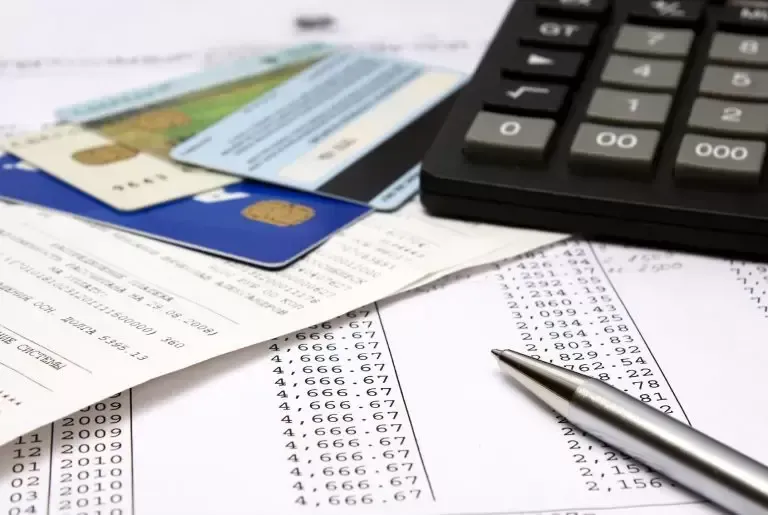
Life And Credit After Bankruptcy
How Can I Rebuild My Credit After Bankruptcy?
Denton County Bankruptcy Lawyer Offers Credit After Bankruptcy Repair Tips
Life And Credit After Bankruptcy In Lewisville, TX
A good Credit After Bankruptcy score reflects financial stability and is necessary for loan approval, renting property and other transactions. The impact filing bankruptcy may have on a person’s credit score is one of the most common concerns people have before speaking to one of our attorneys. However, your credit scores can begin to improve shortly after filing for bankruptcy. Additionally, the negative effect that past due debts, wage garnishment and/or foreclosure have on your credit score is typically much more serious than bankruptcy. Filing bankruptcy can discharge your debts, which means that it will likely be easier for you to improve your credit after filing.
Contact our Texas bankruptcy lawyer at 972-315-6222 for a free consultation.
Hablamos Español.
If you need a fresh start with your finances, then Lewisville bankruptcy lawyer David Shuster of Shuster Law PLLC may be able to help. He dedicated his legal practice to consumer and small business bankruptcy, so he can explain all your options for debt relief. If
Chapter 7 or
Chapter 13 bankruptcy is best for your situation, then he will work with you throughout the entire process. He can also give you advice on how to repair your credit after bankruptcy and avoid future debt problems. For a free consultation, call him now at 972-315-6222.
What Can I Do to Repair My Credit After Bankruptcy?
The following steps may help you improve your Credit After Bankruptcy Score:
- Pull your credit scores: You cannot begin improving your credit score without first having a clear picture of what you need to repair. Fortunately, you can receive one free credit score per year from the three credit reporting agencies (TransUnion, Equifax, and Experian). Look for and dispute any inaccurate information with the three agencies; errors on credit reports are common after filing for bankruptcy.
- Save for emergencies: Vehicle repairs, job loss, and medical bills may snowball into more debt if you lack emergency savings. An emergency like this could derail any attempt to repair your credit score. Generally, it is wise to have savings that can cover several months of expenses. Your savings goal should reflect this amount if possible. If you are able, only spend money on the bare necessities.
- Show stability: There are several ways you can show financial stability, which increases your credit score. For example, make timely payments on rent, utilities, and remaining debts. You can also show stability by keeping the same job or residence.
- Stick to a budget: Be frugal and stick to a strict budget. This can make it easier for you to achieve your other financial goals, such as timely payments or saving for an emergency.
- Pay existing debts on time: In some cases, you may have debts that remain after bankruptcy. For example, student loans are a common type of debt that cannot be discharged, in most circumstances. Make sure to pay debts that survive bankruptcy on time. Pay before the due date if possible, just in case an unexpected expense comes up.
How Long Will It Take to Rebuild My Credit After Bankruptcy Score?
There is no set amount of time for how long it will take to rebuild your credit after bankruptcy. People face very different circumstances before and after filing for bankruptcy. However, we outline below a few commonalities to note.
Chapter 7 bankruptcy will stay on your credit report for 10 years. After you file for Chapter 7 bankruptcy, your debt-to-income ratio will most likely improve. This is a major advantage because it allows you to save money and restore financial stability. As a result, making payments on any remaining debts or bills could become easier. As you continue to demonstrate financial stability, your credit score should improve over time.
Chapter 13 bankruptcy will stay on your credit report for seven years after the completion of your repayment plan. However, this does not mean you will be unable to obtain credit. It also does not mean your credit score will remain poor for this full amount of time. Additionally, Chapter 13 bankruptcy has its own advantages. After filing Chapter 13 bankruptcy, you could be making lower payments on debts through your three to five-year repayment plan than you were previously. Upon completing the repayment plan, some of those debts will be discharged, leaving you with more disposable income.
It is important to keep a close eye on your credit score during this time. Use your free credit reports to chart your progress and look for inaccuracies. It is also important to
stay clear of predatory credit repair services and lenders while rebuilding your finances. These services can derail attempts to rebuild your credit score. Avoid any service that charges excessive up-front fees or loans with sky-high interest rates.
Need Credit After Bankruptcy Repair Guidance? Contact a Texas Bankruptcy Lawyer Today
Your individual financial circumstances are likely to differ from others who are filing for bankruptcy. Therefore, it is important to speak with a professional who can review your situation and address your individual concerns. In many cases, it is possible to begin to repair your credit soon after bankruptcy. Lewisville bankruptcy attorney David Shuster is dedicated to helping people seek solutions for debt relief. To discover options for repairing your finances, call our credit repair attorneys at 972-315-6222
for a free consultation.
We are a debt relief agency and bankruptcy specialist. We help people file for debt relief under the U.S. Bankruptcy Code and we assist in choosing the right type of debt relief solution for your needs.

